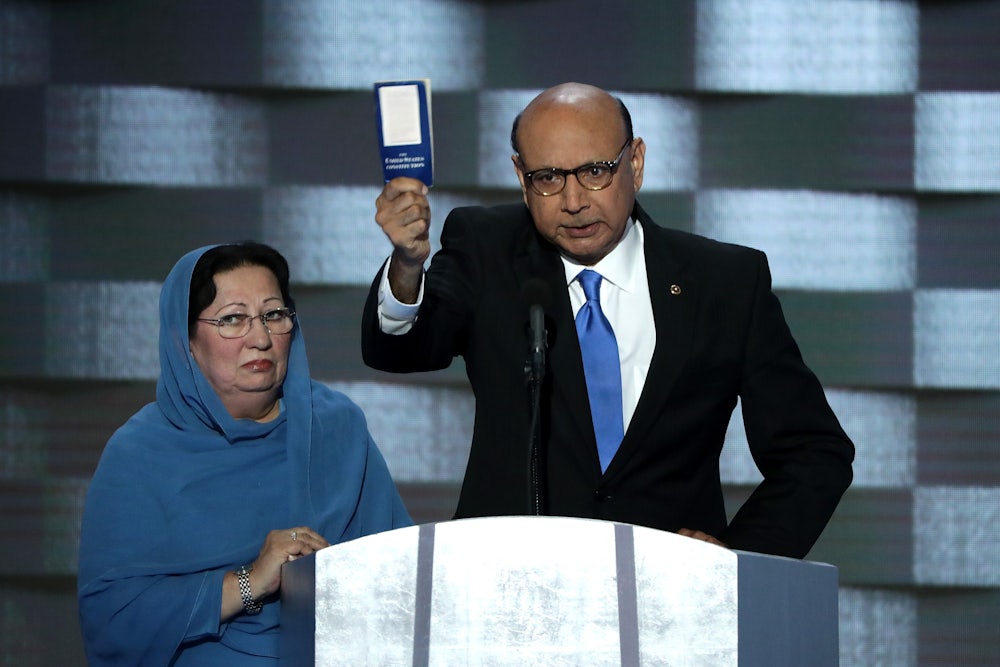Over the past four days, Trump has treated the powerful speech given by Khizr Khan at last week’s DNC as if it were any old political attack. He has followed his tried-and-true method: Counter-attack, dig in, and double-down, all while claiming that he, in fact, is the wronged party. Trump responded to Khan’s accusation that he has made no sacrifices by telling George Stephanopoulos, “I think I’ve made a lot of sacrifices. I work very, very hard. I’ve created thousands and thousands of jobs, tens of thousands of jobs, built great structures. I’ve had tremendous success. I think I’ve done a lot.” He insinuated that Khan’s wife, Ghazala, did not speak at the DNC because of her religion. (She was overcome with grief and instead wrote a devastating Washington Post op-ed.) And he and his cronies have repeatedly and not at all subtly tried to tie the words “radical Islam” to Khizr Khan:
This story is not about Mr. Khan, who is all over the place doing interviews, but rather RADICAL ISLAMIC TERRORISM and the U.S. Get smart!
— Donald J. Trump (@realDonaldTrump) August 1, 2016
Woo boy. This whole exchange between @brianstelter and Trump comms flak @JasonMillerinDC: pic.twitter.com/aAyJQSPY6Y
— Sopan Deb (@SopanDeb) July 31, 2016
Corey Lewandowski defends Donald Trump's comments on the Khans on @NewDay https://t.co/WDTJEItZFQ https://t.co/5HxCG024qV
— CNN Politics (@CNNPolitics) August 1, 2016
But Trump and his circle are on an island in their persistent attacks on the character of a grieving family—and Trump’s party has, once again, abandoned him. His remarks have been roundly criticized by Mitch McConnell, John McCain, Paul Ryan, Lindsey Graham, Jeb Bush, and John Kasich, among others.
This episode is reminiscent of two others in which Trump’s normal bag of tricks failed him: His claim that John McCain’s capture and imprisonment did not make him a hero and his racist attacks on Judge Curiel. But there are two crucial differences. Unlike McCain, the Khan family is not dependent on Trump to win re-election, which undercuts much of McCain’s criticism. And unlike Curiel, the Khan family can speak out and fight back and has shown a willingness to do so.
That last fact is crucial. There have been other flash points like this before, but they’ve all faded once Trump was persuaded to back off. But Trump’s attacks on the Khans may end up being more significant, in part because of their source, the parents of a fallen soldier, but also because, unlike McCain and Curiel, his adversaries aren’t going anywhere.
